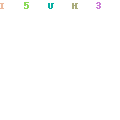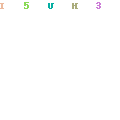In an unprecedented move, a senior judge of the Calcutta High Court has written a letter to all judges of the high court, including the acting Chief Justice Rajesh Bindal, raising questions over the acting chief justice’s intervention in the Narada sting case in transferring the case to the HC and staying the bail granted to four TMC leaders by a CBI court.
“The high court must get its act together. Our conduct is unbecoming of the majesty the High Court commands. We have been reduced to a mockery. As such, I am requesting all of us to salvage the situation by taking such steps, including convening a Full Court, if necessary, for the purpose of re-affirming sanctity of our Rules and our unwritten code of conduct,” the judge wrote in a letter accessed by The Indian Express.
The letter dated May 24, a day after the CBI moved the Supreme Court challenging a division bench order of the high court that directed the house arrest of ministers Subrata Mukherjee, Firhad Hakim, TMC MLA Madan Mitra, and former Kolkata Mayor Sovan Chatterjee, all held in the Narada bribery case, raised a series of questions on the procedural gaps in admitting the CBI’s plea and assigning it to a bench headed by the acting chief justice.
“Whether the high court exercising power in the matter of transfer of a criminal case, at that stage, on its own initiative, could have passed the order for stay, is the second question,” the letter questioned.
On May 21, the order for house arrest was made even as Acting Chief Justice Rajesh Bindal and Justice Arjit Banerjee differed in their opinion regarding the matter and a larger five-judge bench would be constituted to hear the plea. While justice Banerjee was in favour of granting bail, acting CJ Bindal favoured house arrest.
In his letter, the senior judge questioned why a five-judge bench was constituted when normally a third judge is added in case of a split verdict in a division bench.
“Chapter VII provides for a reference to a Full Bench. Such references arise when view taken by a Division Bench is inconsistent with view taken by another Division Bench,” the letter said.
On May 17, the four TMC leaders were arrested by the CBI but were granted bail on the same day by a designated CBI court. However, the CBI petitioned the HC urging the judges to transfer the trial from a special CBI court to the High Court, declare the proceedings in the agency court on May 17 a nullity in the eyes of the law, and conduct the proceedings afresh.
The CBI made a plea that the CBI court had granted bail to the four leaders “under the cloud of mobocracy, pressure, threat and violence and is a nullity in the eyes of law”. The high court then heard the matter after court hours and stayed the bail granted by the special court.
“The appellate side rules require a motion seeking transfer, either on the civil or criminal side, too be headed by a single judge. However, the First Division Bench took up the matter, treating it to be a writ petition,” the judge wrote.
Referring to the CBI’s communication that TMC made attempts to the trial court, “the mob factor may be a ground on merits for adjudication of the motion but could the First Division Bench have taken it up and continue to hear it as a writ petition is the first question,” the letter stated.
Source: https://indianexpress.com/article/india/we-have-been-reduced-to-calcutta-hc-judge-on-narada-case-7333937/



